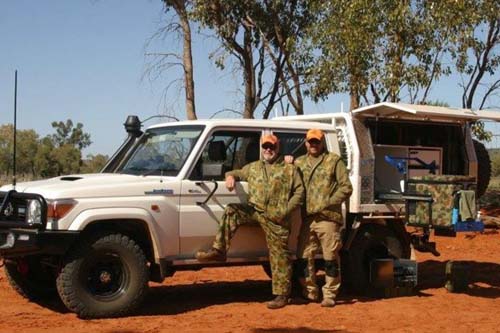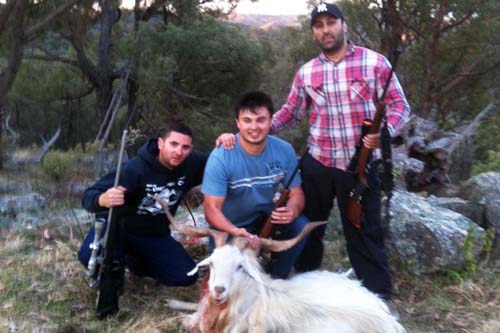Ethical Hunting Practices
Ethical Conservation Hunting in Australia
The concept of ethical hunting has been around for some time and it is important that all hunters have an understanding of its principles and practice these when in the field.
As a hunter, it is very important to know and understand the foundation of ethical and conservation hunting in Australia. This will ensure you do not violate any laws. It is also a way to show respect for the animals you are hunting and to make the most of your hunting experience.
What is ethical and conservation hunting?
In essence, it is about understanding and respecting the animal being hunted and its habitat. Even though the animal is being hunted, there is still a need for the hunter to treat it with respect. When hunting in Australia, it’s essential that every hunter abides by the laws and regulations that ensure recreational hunting is performed in a sustainable manner. This also helps ensure the safety of the hunter and the humane treatment of the wildlife.


In Australia, with the exception of Deer, a game hunting licence isn’t required if the hunter aims to hunt on private land. Please contact the DPI in the properties state for up to date requirements before you set out to hunt. However, if the animals to be hunted are on public Crown land, there is a requirement for the hunter to have a general, or restricted, game hunting licence – this includes when hunting birds, deer, duck, quail and pigeon.
Fair Game
Hunters have a duty to ensure the fairness of the game hunt. This requires that the animal being hunted is not unduly harassed during the process. Hunters are also not allowed to use electronic devices, radio tracking collars or vehicles, to make the hunt as fair as possible towards the animal.
Clean Shot
A hunter should always aim for a clean shot. This refers to shooting the animal on a point on its body where you are confident it will deliver a lethal blow. Obvious places are the vital organs of the heart and lungs. This allows for the greatest margin of error and maximises the possibility that the animal is dispatched quickly.
By hitting the traditional hunting ‘kill zone’ on the animal, even if the animal isn’t killed fatally with the first shot, it won’t go far and this allows the hunter to follow up quickly with a finishing shot. Marksmanship is an important part of a hunter’s skillset, as this determines how quickly and accurately a target animal is dispatched.
Respect the Habitat
A key part of ethical and conservation hunting in Australia is respecting the habitat of the animals. This includes waterways, streams, trees and shrubs. No hunter is allowed to cut down trees for firewood – they should collect dry wood from the ground - taking care not to disturb native wildlife's homes. Tents should also be set up at least 20m away from any bodies of water to prevent possible contamination. Leaving litter in the field is also not allowed – it is required that hunters bring their own rubbish bags, to dispose of it later.
The Government of Australia is working hard to prevent unethical hunting operations in the country. Hunters should play their part, and ensure they hunt in an ethical manner and preserve the environment, in order to continue to enjoy the benefits that this activity brings in the future.

Read more by visiting the Game Management Authority of Victoria:
http://www.gma.vic.gov.au/hunting/deer/ethical-hunting
Kangaroo Mitigation
‘If you are asked to undertake pest mitigation under a valid permit, you must follow all conditions of that permit including adhering to national guidelines such as the National Code of Practice for the Humane Shooting of Kangaroos and Wallabies for Non-Commercial Purposes. Failure to do so is unacceptable and will result in you being reported to the appropriate authority.’
Link to code - http://www.environment.gov.au/biodiversity/wildlife-trade/publications/national-codes-practice-humane-shooting-kangaroos-and-wallabies
Privacy Policy Website Terms and Conditions
DISCLAIMER:
Game Licenses are the responsibility of the hunters where needed for specific game. If in doubt, please contact the DPI in your state.
Also in this Section
- Browse Hunting Properties
- Conservation Hunting
- What you can Hunt in Australia
- Conditions for Property Access
- Book your Hunt
- Frequently Asked Questions - FAQ's
- State contact for specific Game Hunting Permits
- List your Property with IHP




